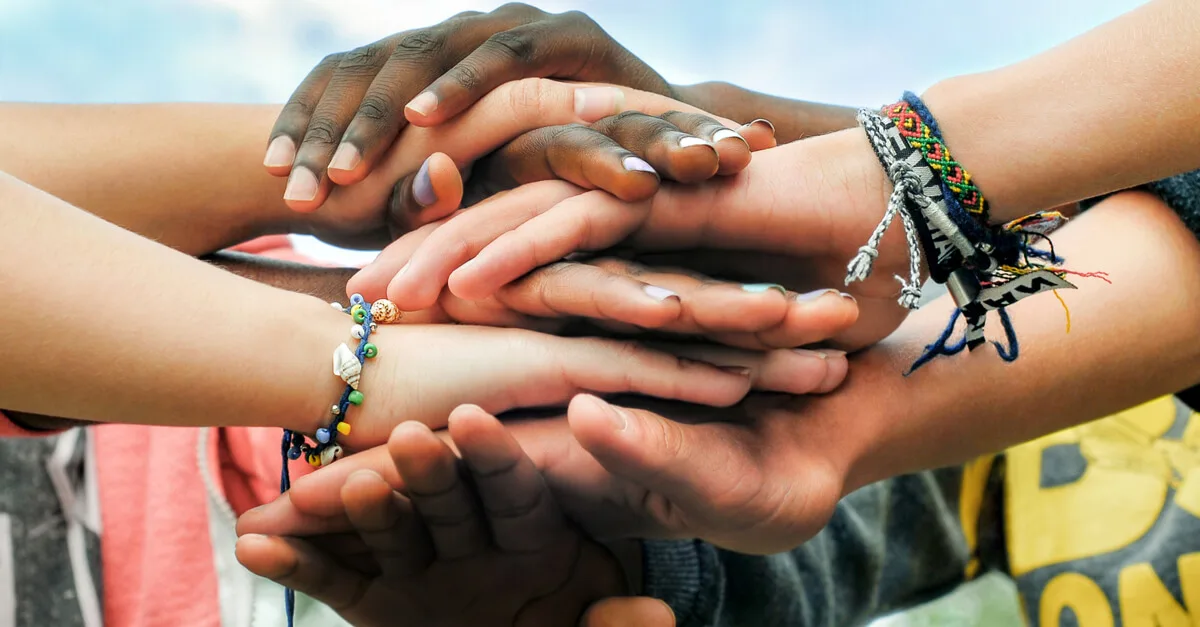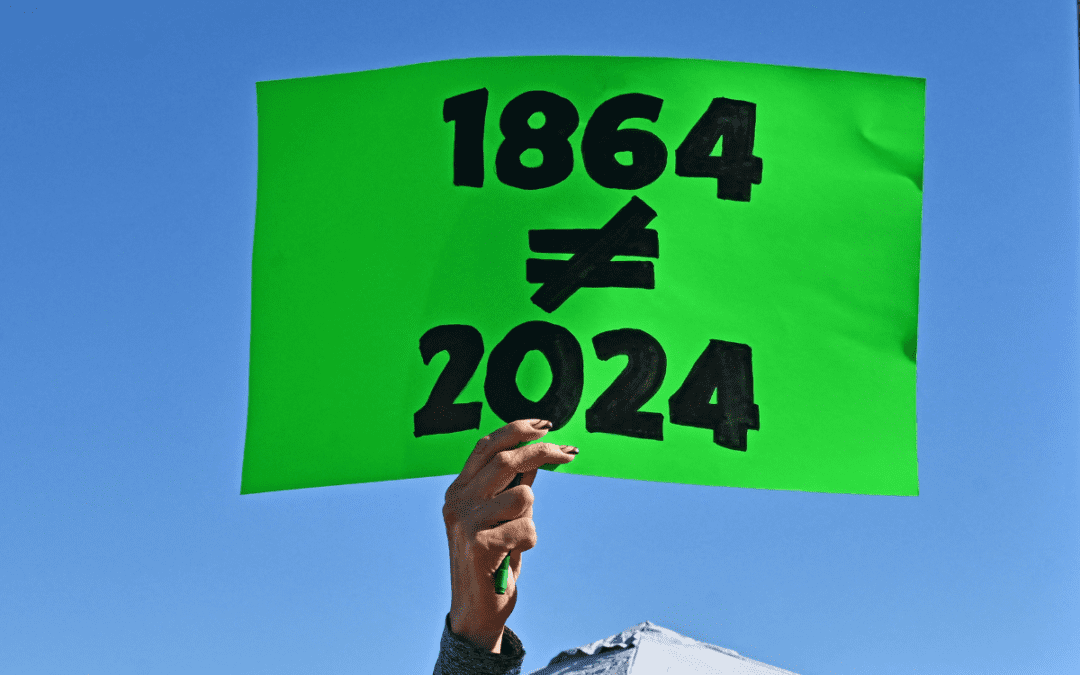
Image via Shutterstock
In spite of being the two most powerful voting minorities in the US, African Americans and Latinos have a common enemy. Hint: It is not each other.
Maaaaan, I have been trying to write this column for days. But, in my defense, it is just not easy to say what I must, which, in short, is this:
Latinos could save America, turn things around for the better, and not just with our votes come November. But to do it, we must embrace African Americans, truly become sister communities. Have each other’s backs.
And in order to do that, Latinos must do away with our soft racism. Because soft racism is still racism. And Latinos can be racist as hell. Yeah, I said it (finally).
Now, hold up, I don’t mean Klu Klux Klan racists. I don’t mean keep-a-job-or-rental-from-a-black-person-racist. Not generally. And I certainly don’t mean racists who would shoot a black teen for no other reason than he was wearing a hoodie and happened to be black. Or a black man jogging around his neighborhood. Or a black woman asleep in her own house. Hell, I don’t even mean Trump-racists.
RELATED: Afrolatinos to Follow If You Are Looking For a Refreshing Perspective on Race
I am talking soft racists. You know. People who go about their business without a word about truly messed up stuff like the murder of a black boy.
I am talking don’t-bring-home-a-black-boyfriend racists. Or, “mejora la raza” racists. And “el negro, si no la hace a la entrada, la hace a la salida” racists.
Ahhhhh, you say, you mean my grandmother? Oh yeah, she was racist, but not me. I have tons of black friends.
Really? Are they African American friends who don’t work with you, or are related to you in any way? And how do you support those friends when yet another member of their community is shot down because of the color of their skin? Do you get dressed and go protest? Do you boycott? Do you speak up in support?
Do.you.understand.how.much.African.skin.you.have.in.this.game?
RELATED: I Used to Identify as Afrolatina. Here’s Why I Was Wrong.
Now, look, this is not some version of Martin Niemöller’s famous post-WWII words: “First they came for the socialists, and I did not speak out…” This should be a natural impulse for Latinos, to say something when you see something as egregious as cold-blooded murder. Latinos are people of empathy and common decency.
But okay. Maybe that is not enough for you (in which case I shudder to think of how you’ll vote). So how about this: think about it as survival.
A 2008 Pew Research Center study found that while African Americans and Latinos hold broadly favorable views of each other, Latinos are less likely to say the two groups get along well. Hispanics were also significantly more likely to say that inter-group relationships were strained. I wonder why.
And yes, it is true that Black Americans believe we take jobs from them, and, come on, to some degree, we do. Because as I wrote last week, colorism is the close cousin of racism. Those who will reject a black person for the darkness of their skin, will “settle” for hiring a brown Latino, especially if they can hire him or her for less because of their undocumented status.
That said, it is also true that some political leaders have worked hard to divide us and we’ve let them because we’ve always been told we are different. Our own history of racism against Afrolatinos has prepped us to be pitted into competition with African Americans. Against one another.
RELATED: Racism Is a Virus
Then there is the fear. Older Latinos, speaking little English when they got here, bought into the vision they saw on the news, in which it (still) sometimes feels like only black people commit crimes, and was even more obvious when I was in my twenties and thirties. And make no mistake, that vision takes lives.
It is the same vision Gregory and Travis McMichael bought into when they pursued, shot, and killed Ahmaud Arbery while he jogged in Brunswick, Georgia. It is the vision of the people who covered things up so that they weren’t arrested until a video showed the murder of an innocent Arbery. And we Latinos have stood by and watched all this. Looked away from the drive-by-shootings in impoverished neighborhoods, said little each time one of the hundreds of black men and boys are killed by police. Hid behind, “well, they must’ve been doing something wrong” just like some of us hide behind “I have to admit it is their parents’ fault for bringing them here illegally,” which is a white person’s argument. But we have hidden. As if this weren’t our beef when it is.
Not least because we have so much in common.
African Americans are often treated as if they hadn’t been born here. As foreign others. Meanwhile, black Latinos are often racialized as African Americans and discriminated against as a black person might be, regardless of ethnicity. Even the president only attaches the word “the” to an ethnicity or a race when speaking of our communities: the Latinos. The African Americans. It is his way of “othering” us all.
In the end, it is the same enemy, this enemy of ours. And we cannot let the old ideas of the past keep us separate and away from our own progress. We (Latinos) must deal with our soft racism once and for all.
The benefits of doing so are immense, even if you’re not all in on doing the right thing. Did you know that Blacks and Latinos united in Mississippi to halt over 200 anti-immigration pieces of legislation over the past decade? That in 2011, the NAACP stood by the NCLR to fight racial profiling in Florida? And that Casa de Maryland, another Latino advocacy group, has been one of the most vocal in protesting the death of Freddie Gray at the hands of police in Baltimore? Just think if we worked together like this in the rest of the country. If we were rightly perceived as united against our causes.
That is what we can do for each other: amplify our mutual calls against those things that matter to both communities: mass incarceration, police brutality, racial profiling, housing discrimination, income, health, and disparities in educational access.
And when the next innocent black person is murdered in cold blood in plain freaking daylight, we can let African Americans know with our actions and with our voices that they are not alone. That they will never be. Not as long as we are here.
Subscribe to The Americano’s YouTube Channel HERE.
Politics

State Official: 1864 abortion ban gives Arizona ‘black eye’
Arizona’s role at the forefront of the climate crisis, defending democratic elections, and protecting reproductive rights has caught the attention...

Biden makes 4 million more workers eligible for overtime pay
The Biden administration announced a new rule Tuesday to expand overtime pay for around 4 million lower-paid salaried employees nationwide. The...
Local News

The Amazon drones are coming to Arizona later this year
The drones operate on electricity, while most of Amazon’s fleet of vehicles operate on gasoline. Amazon drone deliveries are coming to the West...

Arizona’s reality TV stars: Where are they now?
From A-list actresses to a controversial bachelor, here's a roundup of reality TV stars from Arizona. Whether you love it or hate it, reality TV is...




